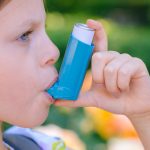
A head-to-head trial of obese, pre-diabetic people who ate the same amount of daily calories — with one group following a fasting schedule and the other eating freely — found no difference in weight loss or other health indicators. So, despite the fact that fasting diets are all the rage, if you simply cut your daily caloric intake, weight loss will occur no matter when you eat, the study authors concluded. “Consuming most calories earlier in the day during 10-hour time-restricted eating did not decrease weight more than consuming them later in the day,” wrote a team led by Dr. Nisa Maruthur, an associate professor of medicine at Johns Hopkins Medicine in Baltimore. Her team presented its findings Friday at the annual meeting of the American College of Physicians (ACP) in Boston. The study was published simultaneously in the Annals of Internal Medicine. Intermittent fasting has become very popular among weight-conscious Americans in recent years. In an ACP news release, the researchers noted that “evidence shows that when adults with obesity limit their eating window to 4 to 10 hours, they naturally reduce caloric intake by approximately 200-550 calories per day and lose weight over 2-12 months.” But what if people simply cut their daily calories by the same amount, without shifting their eating schedules? The new trial involved 41 people with obesity and pre-diabetes,… read on > read on >


















